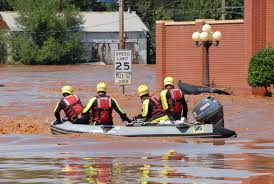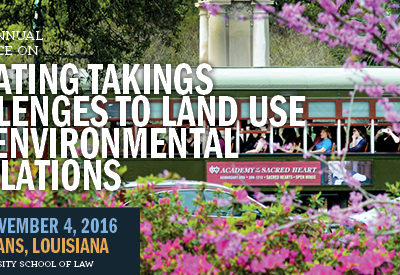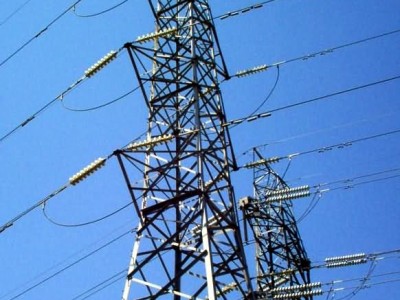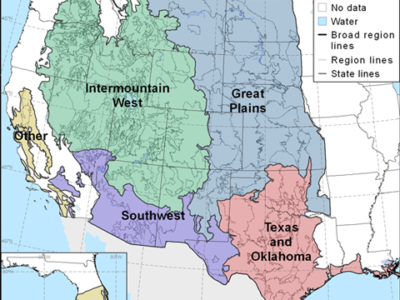Louisiana Flood Lessons for a Climate-Changed Future
Louisiana's preparedness for a 1000-year flood, and implications of the slow media response for slow-onset climate impacts
The devastating floods in southern Louisiana a week ago left at least 13 people dead, tens of thousands in need of rescue, and 60,000 homes damaged. In one parish, nearly ninety percent of homes flooded. Cellular network failures, road closures, power outages, and sewage-contaminated floodwaters continue to threaten relief efforts. The American Red Cross is likely to give out 1.2 million meals in response to what it has said is the “worst disaster to strike the United ...
CONTINUE READINGNational Park Service Celebrates Centennial Anniversary
It's Time to Celebrate--and Re-Commit to--"America's Best Idea"
This week the National Park Service celebrates its 100th birthday. On August 25, 1916, Congress enacted legislation proposed by President Woodrow Wilson to create the Park Service. To this date, creation of the Service remains one of the nation's most important actions to protect America's environment. (Documentarian Ken Burns--himself a national treasure--famously called the national park system "America's best idea.") And it's an American-conceived idea tha...
CONTINUE READINGUpcoming Regulatory Takings Conference 2016
Nation's Top Annual Takings Event Set for November 4th in New Orleans
One of the most important issues in modern environmental law and policy is the extent to which constitutionally-protected property rights limit environmental regulatory programs at the federal, state and local levels. Indeed, the U.S. Supreme Court has focused more attention on this question over the last four decades than any other aspect of modern environmental law and policy. So it's a very good thing that there's an annual opportunity for environmental scholar...
CONTINUE READINGBeyond Administrative Law
Law students need to know about more than administrative procedure and judicial review.
Since the days of Felix Frankfurter, the Administrative Law course has been a staple of American law schools. It's a great course, but it's limited. The same is true of most of the courses on legislation and regulation in the first year, which also focus on how courts interpret statutes and how they review administrative actions. But a student could emerge from these courses with an A+, yet without understanding the reasons for regulations to exist or how to argue ...
CONTINUE READINGLegal Analysis of CAISO Expansion
We don't foresee changes to FERC jurisdiction or Commerce Clause validity
The California Independent System Operator -- known as CAISO -- is considering expanding its footprint to include Pacific Corp as a participating transmission owner. CAISO recently commissioned a study that Professor William Boyd of the University of Colorado and I authored, in consultation with Ethan Elkind of Berkeley and UCLA and Sho Sato Professor Dan Farber of Berkeley Law, to evaluate two important legal questions about the expansion. One question is wheth...
CONTINUE READING“We’re Not, You Know, People That Don’t Want Those Things”
Trump promises clean air, clean water, safety, and a free lunch.
Every now and then, you see a car with one bumper sticker that says "Support Our Troops" and another that says "Abolish the IRS." It doesn't seem to have occurred to the car's owner that supporting our troops includes paying and equipping them, and that someone is going to have to collect the taxes to do those things. In this fantasy world, we get all the good things from government like a strong military and a clean environment, but we never have to pay anything to...
CONTINUE READINGHas Environmental Law Hurt Trump Supports? Could It Help Them?
A major study sheds new light on these issues.
It's time to update our image of Trump voters. We thought that Trump voters were less affluent, lived in areas that were losing jobs in manufacturing and in areas impacted by immigrants. All of that turns out to be wrong, according to a massive new study from Gallup based on surveys of over eighty thousand people. Here are the key conclusions: "It seems that lower social status and material hardship play a role in support for Trump, but not through the most obvi...
CONTINUE READINGWhat Threatens Biodiversity?
Are we too worried about climate change to focus on the other problems we know about?
Yesterday, Nature published a noteworthy comment on the biodiversity crisis, written by researchers at the University of Queensland and the International Union for Conservation of Nature (IUCN). The piece is based on a study of 8,688 species that are classified on the IUCN's Red List either as threatened (vulnerable, endangered, or critically endangered) or near-threatened. The main finding is that the most prevalent threats to these species are overexploitation (af...
CONTINUE READINGConflicting Visions of the Future of the American West
The GOP favors the Old West of ranching, logging, mining, and oil. The Democrats have a different view.
The Democratic and Republican parties have very different ideas about the 640 million acres of land owned by the federal government, mostly in the West. It’s not just that the party platforms disagree about the balance between preservation and resource exploitation. It’s also that Democrats have a much different vision of the future of the American West. These differences reflect some political realities. The GOP’s support is heavily rural and its funding base ...
CONTINUE READINGThe Miracle Elixir for Economic Growth: More Pollution!
Trump claims allowing more water and air pollution will boost the economy through the stratosphere.
Is increased pollution the key to economic growth? Can we increase economic growth by dropping restrictions on air and water pollution and ramping up climate change? Donald Trump believes that the answer is yes – indeed, if that if we just get rid of those pesky environmental regulations, we can create 500,000 new jobs every year, add $7000 to the average family’s income, and increase GDP by $500 billion per year. In fact, he says, the Obama Administration has de...
CONTINUE READING












